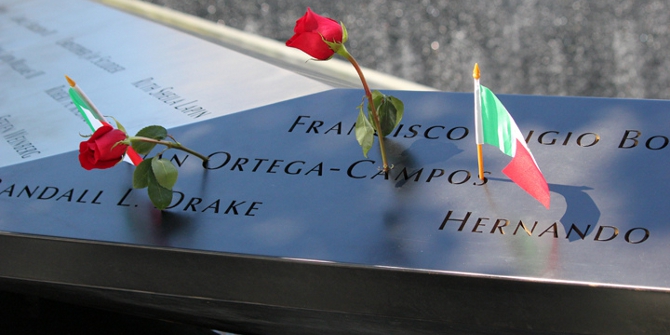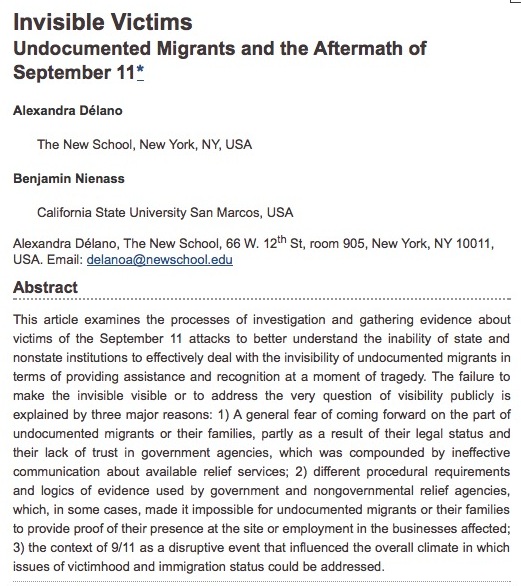 The undocumented immigrants impacted by the bombing of the World Trade Center were practically invisible to the government and agencies that were supposed to help them, two academics reported Tuesday.
The undocumented immigrants impacted by the bombing of the World Trade Center were practically invisible to the government and agencies that were supposed to help them, two academics reported Tuesday.
The victims and their families were never properly counted because of their social and political isolation from wider society:
- Immigrants without papers distrusted law enforcement and were wary of drawing attention to themselves.
- Even if they did come forward, they lacked the paperwork necessary to prove claims and receive assistance.
- Public opinion linking immigration and terrorism after 9/11 exacerbated the risks of coming out of the MIGRA closet.
Study authors Alexandra Délano and Benjamin Nienass explain:
Our research, shows that from the perspective of the undocumented migrant, it was a breakdown of private as well as public life that explains their omission both from public memory and vital relief services.
We argue that there are three major reasons for this failure:
1) A general fear of coming forward on the part of undocumented migrants or their families partly as a result of their legal status and their lack of trust in government agencies, which was compounded by ineffective communication on the part of government agencies at the moment of informing about and delivering relief services;
2) different procedural requirements and logics of evidence used by government and non-governmental relief agencies, which, in some cases, made it impossible for undocumented migrants or their families to provide proof of their presence at the site or employment in the businesses affected near the World Trade Center;
3) and finally, the context of 9/11 as a disruptive event that influenced the overall climate in which issues of victimhood and immigration status could be publically addressed. The association between immigration, security, and terrorism was significantly reinforced after 9/11 and the reactions triggered by this climate were particularly felt by the groups that were providing assistance or dealing with immigrants’ claims.
Continued @ the London School of Economic’s daily blog on American Politics and Policy…
 Journal article (abstract screen cap above) available at Academics and Society
Journal article (abstract screen cap above) available at Academics and Society
Flags photo by Katie Killary
